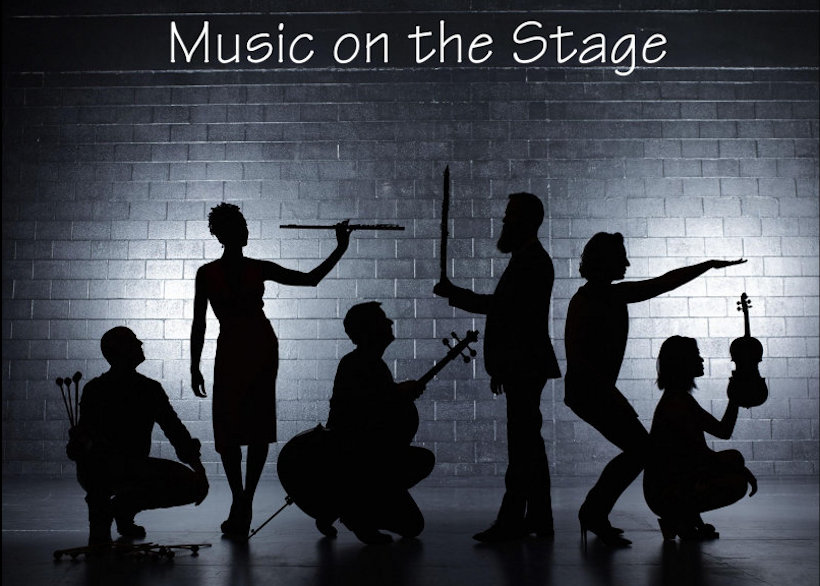12. Outside the Box.
In general, the arts have been most comfortable sticking to familiar genres. An opera is an opera, a
ballet is a ballet, and the concert hall obeys different conventions from the theater. But increasingly
as the 20th century wore on, creative artists began to question these assumptions. Why should an
instrumentalist not also be an actor? Must chamber music always be polite; can’t it also be the voice of
social protest? What happens if you take a Mass setting out of the church (or concert hall) and stage it
as opera? Or make a ballet that turns tradition on its head?
Then came the pandemic of 2020/21. For a while, the usual means of public presentation were no longer
available. One solution came via a medium that had been growing in the pop world for some decades:
the music video adopted for classical purposes. Meanwhile, musicians wishing to keep performing and
organizations needing to maintain their audiences began to think more creatively yet—discoveries that
may continue to play a part even when COVID has become only a memory. rb.
The script, videos, and images will be posted immediately after class.
The full-length pieces that I played from my own DVDs are represented on YouTube only by excerpts and trailers,
but the selection is pretty good. For Missa in Tempore Belli we get the more extended of the two scenes
I chose, plus a number of other extracts and interviews. For Alexander Ekman's Play, there are versions
of all three scenes we saw; the one marked "Closing song" in the list below actually contains about 18
minutes of the program, though in inferior quality.
While there are no extended videos of the collage performance FAUST [working title] with which I ended
the class, there is one number that we saw, plus many more excerpts that we didn't and a trailer. For the
remarkable COVID initiative by the Irish National Opera, 20 Shots of Opera, we not only have the complete
Jenn Kirby opera, Dichotomies of Lockdown, but also a link to the official website, which includes
complete videos of all the other 19 operas, plus supporting material! rb.
*Asterisked items were not seen in class.
| |
|
|
|
|
|
| IMAGES |
The thumbnails below cover the slides shown in class, though
there may be a few small discrepancies. Click the thumbnail to see a larger image.
Click on the right
or left of the larger picture to go forward or back, or outside it to close. |
 | |
 | |
 | |
 | |
 | |
 | |
 | |
 | |
 | |
 | |
 | |
 | |
 | |
 | |
 | |
Here are brief bios of the major artists, composers, and writers considered in the class, in order of birth.
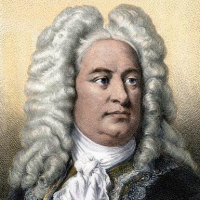 |
George Frideric Handel, 1685–1759. German-born English composer.
Gradually over the last half-century, Handel's 42 operas and numerous dramatic oratorios have been recognized as placing him on the level of Mozart and Verdi as an opera composer. The delay in appreciation is partly due to the fact that his preferred form, opera seria, is based almost entirely on recitative and solo arias. Born in Germany and trained in Italy, he dominated the English musical scene in the first half of the 18th century.
|
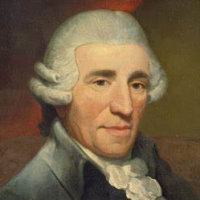 |
Franz Joseph Haydn, 1732–1809. Austrian composer.
With Mozart, Haydn was the leading musical genius of the late 18th century. Equally prolific, but far longer lived, he wrote 104 symphonies, 68 string quartets, 16 operas, and 14 masses, together with the two great oratorios, The Creation and The Seasons.
|
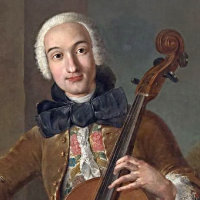 |
Luigi Boccherini, 1743–1805. Italian composer.
Starting his career as a cellist, Boccherini was also a prolific composer, mostly of chamber music. He lived in Spain from 1769 to 1787, prospering under royal patronage. His last years, however, were less successful, and he died in poverty.
|
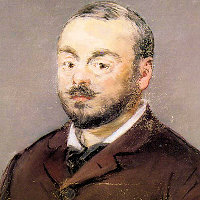 |
Emmanuel Chabrier, 1841–94. French composer.
Largely self-taught as a composer, he worked in the civil service until 1880. He wrote several operas, including L'étoile in 1877, but is best remembered for his orchestral pieces Espańa (1883) and Marche joyeuse (1888).
|
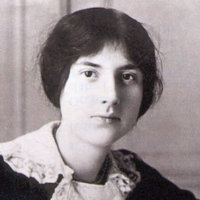 |
Lili Boulanger, 1893–1918. French composer.
While still a young child, Lili attended the lessons of her elder sister Nadia at the Paris Conservatoire, and soon came to the attention of Gabriel Fauré and other leading musicians in her own right. Although plagued by illness, she became the first female winner of the coveted Prix de Rome, and had a commission to write an opera to a text by Maeterlinck, but died at 24 with tragically little of her potential realized.
|
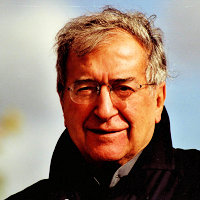 |
Luciano Berio, 1925–2003. Italian composer.
After following a practice of strict serialism for some years, Berio began to depart from it by including elements of chance and collage, incorporating fragments of other works as in his Sinfonia (1969), arguably his masterpiece. His Folk Songs of 1975 was one of several works written for his wife, the American soprano Cathy Berberian.
|
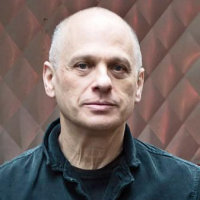 |
David Lang, 1957– . American composer.
Born in Los Angeles, but now living and working in New York, Lang was a co-founder of the musical collective Bang on a Can. In 1908, he was awarded the Pulitzer Prize for Music for The Little Match Girl Passion, a retelling of the Andersen story using the structure of a Bach Passion.
|
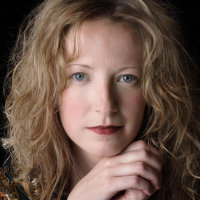 |
Amy Beth Kirsten, 1972– . American composer.
Kirsten trained as a voice and piano major, only beginning formal study in composition at age 30, latterly at the Peabody Conservatory. She specializes in music that has a narrative, theatrical, or vocal component, even though performed by instrumental groups.
|
 |
Jennifer Walshe, 1974– . Irish composer-performer.
Born in Ireland, Walshe received training in Scotland, Illinois, and Germany, before beginning a career writing in a variety of media, often with a social or political agenda, and often including herself as a singing actor. She was elected Professor of Composition at Oxford in 2021.
|
 |
Mikael Karlsson, 1975– . Swedish composer.
After training in his native Sweden, Karlsson moved to New York City, where he continues to work, writing music for video games, films, and several ballets by his friend Alexander Ekman.
|
 |
Caroline Shaw, 1982– . American composer.
Aged only 30, Shaw was the youngest ever winner of the Pulitzer Prize in Music for her ground-breaking Partita for Eight Voices (2013). She performs regularly as a violinist (which she began at age 2), and vocalist (with the group Roomful of Teeth, for whom she wrote Partita), and even with rapper Kanye West. Composition was a comparatively late career choice.
|
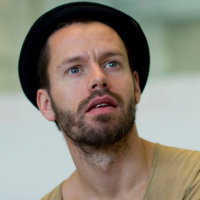 |
Alexander Ekman, 1984– . Swedish choreographer.
After five years as a professional dancer in Sweden and Holland, Ekman began a free-lance career as a choreographer when he was 21. His works, which move beyond traditional ballet technique in startling and inventive ways, have been created for or taken up by companies all over Europe.
|
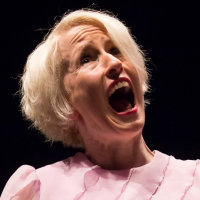 |
Laura Bowler, 1986– . British composer-performer.
Bowler's press release quotes a description of her as a "triple-threat composer-performer-provocatrice," a fair account of her boundary-busting performances in her own multi-media works with social or political themes. She recently completed an opera about sexual assault for the Royal Opera House.
|
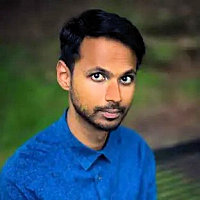 |
Manoj Kamps, 1988– . Sri Lankan Dutch conductor-composer.
Manoj (using the pronoun "they") bill themselves as a "Queer conductor, composer, and theatre maker." These three roles were in evidence in their 2020 collaboration on FAUST [working title] at the Dutch National Opera, but Kamps have also conducted many classical operas and several premieres.
|
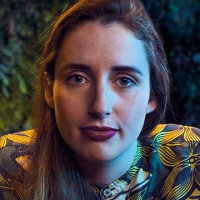 |
Lisenka Heijboer Castańon, bdnk. Peruvian-Dutch director.
Self-described as "a Dutch-Peruvian stage director and theatre maker whose practice is characterized by her search for collaborative process and space for sound [who] looks to create work in which there is always a moment for joy, a presence of magic and room for chaos" she sprung to the fore with her collage piece Faust [working title] for the Dutch National Opera in 2020, which as in turn led to other commissions from companies in Europe and America.
|
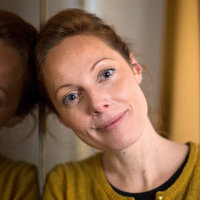 |
Barbora Horáková, bdnk. Czech director.
Barbora Horáková Joly studied voice in Switzerland and was set on a career as an opera singer before switching to stage direction. Her 2021 staging of Haydn's Missa in Tempore Belli in Amsterdam has led to other invitations (with more standard repertoire) from companies in Germany, Holland, and Geat Britain.
|
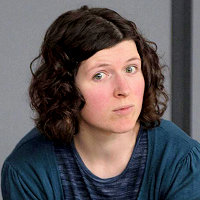 |
Jenn Kirby, bdnk. Irish composer.
Kirby holds a doctorate in composition from Trinity College, Dublin, after studying software development and music technology elsewhere. According to her website, " Her output includes contemporary instrumental composition, electroacoustic music and experimental-pop, often exploring humour and theatre."
|
